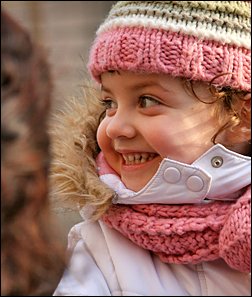 Language, you are reading one right now. But how do we, as humans, learn language? What parts of the brain and who is most responsible for our acquisition of a new language? Language is a mystery to a lot of people, but with more modern technology and science it has become less of a mystery, and we can now determine when and how we learn our first words. We can address linguistic acquisition by age group:
Language, you are reading one right now. But how do we, as humans, learn language? What parts of the brain and who is most responsible for our acquisition of a new language? Language is a mystery to a lot of people, but with more modern technology and science it has become less of a mystery, and we can now determine when and how we learn our first words. We can address linguistic acquisition by age group:
Birth to 1 Year
This is known as the response stage. For the first year there will be little to no understandable vocalizing. Instead, at this age, the infant will primarily be responding to things like their name. The baby will also develop an early skill of distinguishing a person’s mood or tone of voice, meaning they can tell whether or not you are mad or happy. Due to their inability to vocally respond, most responses will be physical in nature, such as touching, reaching and looking.
12 Months – 18 Months
During this period, the infant begins to develop its natural language, whether it is Spanish or English, or another language. They can even easily acquire multiple languages with much more ease than at later ages. The brain’s neuron’s make millions of connections every minute. This is millions of times faster than our latter years. This also means that at this age the baby is associating objects with words, like dog, daddy, and mommy. This is a vital stage in linguistic development and a child during this time will learn whatever it is taught the easiest in its lifetime, when it comes to language. Lastly, the child may seem to be repetitive and copy a lot of what the primary care-taker does. Do not discourage this behavior; the baby is developing vocabulary and the ability to communicate effectively by mimicking a positive role-model.
18 Months – 4 Years
This is known as the “Simple Sentence” stage. The child can now form simple sentences and use basic conjunctions and prepositions. This means that the child is able to state what it wants and communicate its needs to the parent or care-taker. This is where the child does most of its grammatical learning, and figures out how to associate symbols and pictures with words. This is vital for the child to learn the alphabet. Because really, who wants to draw a cat every time we wanted to say cat?
4-8 Years
During this time-period. The child has a full, genetically-engineered, understanding of his or her natural language. This means they are able to effectively communicate their wants and dislikes and desires to whomever they want. They still do, however, lack social communication when it comes to other children. This is the age of their first years in school, and the child often is shy around the new environment and may show signs of uneasiness at home.
8-11 Years
This is where the child perfects his or her natural language. The child is now able to communicate at an adult level, and knows nearly 50,000 words and uses almost 20,000 of those words. The child is now able to write effectively and convey his or her meanings with accurate word choice.
11-Adulthood
This is the final stage. The teenage years are when your child will break out from his social shell he built in earlier years. The child will begin to learn more sophisticated vocabulary. There is no true age where you ever stop learning vocabulary.
Now you’ve seen the different ages and what the brain is doing during those years. Although the cerebral cortex part of your brain is most responsible for your linguistic development; language is a process, just as memory is. It’s a series of connections and thoughts and images that strings together a pattern that is common amongst humanity. These patterns have been standardized and have been set to rules, now known as English, Spanish, Swahili, French, German, Chinese, and so on. Without these vital age groups, and the love of our parents during our crucial language-acquisition stage, we would never have the ability to talk. Sounds awful? I think so, so go give your parents a great big hug for teaching you how to speak!
About the author: Tim Frisch is a regular contributor at ProbioticSmart.com. He is also a student at UW-Stout in Menomonie, Wisconsin.